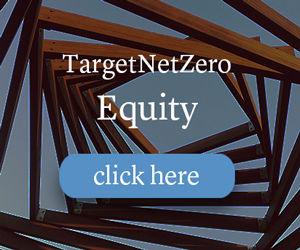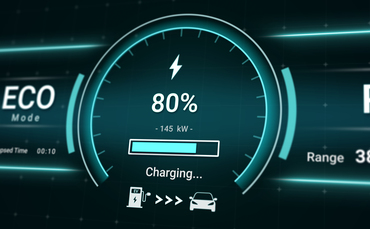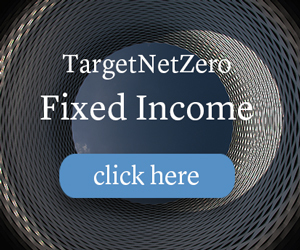At Lombard Odier Investment Managers, our way of deploying capital in the transition to net zero differs from typical low-carbon strategies. Instead of excluding all high-emitting companies, we apply forward-looking analysis across all industries to identify attractive businesses that are rapidly decarbonising and becoming fit for an emissions-free economy.
In doing so, we aim to help investors achieve portfolio objectives while seeking to decarbonise, diversify and drive the transition forward.
Why exclusions limit opportunities
We do not employ emissions-based exclusions that may lead to investing only in businesses with carbon footprints that are already aligned with net zero. In our view, such approaches typically:
- Limit diversification. Exclusions restrict the investment universe to sectors with inherently low levels of emissions, like media and IT, creating potential concentration risks in portfolios.
- Slow the transition. Investing only in low-carbon-now companies withholds capital from transitioning firms in economically important but hard-to-abate sectors, like steel and agriculture. This slows emissions-reduction where it is most needed.
- Miss opportunities. By excluding companies with high carbon footprints but credible decarbonisation plans, these strategies risk omitting quality firms that are aligning to net zero and whose progress might be underappreciated by the market.
For these reasons, we invest not only in low-carbon companies but also target transitioning firms in hard-to-abate sectors. Because these firms are effectively cooling the economy by transitioning in next zero, we call them ‘ice cubes'.
Seeking ice cubes enables us to build diversified portfolios that better reflect decarbonisation across the economy. It also provides exposure to potential growth opportunities, as firms that are reducing emissions are better positioned to take advantage of increased demand for low-carbon products and services. Also, investing in ice cubes helps drive the transition forward by supporting the material emission reductions they are delivering.
Adding ice cubes to lower portfolio temperatures
To build our decarbonisation strategies, we designed a proprietary implied temperature rise (ITR) methodology to measure the alignment of a company or a portfolio to the goals of the Paris Agreement. ITR answers the question: if the global economy were behaving like a particular company or my investment portfolio, what would be the likely resulting degree of global warming?
Our ITR methodology has been independently reviewed by the TCFD's Portfolio Alignment Team and the University of Oxford. To illustrate how it informs our analysis and helps to identify ice cubes, we provide three case studies[1] from equity, fixed income and convertible bond markets below.
The case studies provided in this document are for illustrative purposes only and do not purport to be recommendation of an investment in, or a comprehensive statement of all of the factors or considerations which may be relevant to an investment in, the referenced securities. The case studies have been selected to illustrate the investment process undertaken by the Manager in respect of a certain type of investment, but may not be representative of the Fund's past or future portfolio of investments as a whole and it should be understood that the case studies of themselves will not be sufficient to give a clear and balanced view of the investment process undertaken by the Manager or of the composition of the investment portfolio of the Fund now or in the future.
Investing in transition
Using ITR, our TargetNetZero investment strategies aim to invest in equity, fixed-income and convertible bond opportunities that offer return potential, diversification, and aim to decarbonise in alignment with the Paris Agreement.
We believe this forward-looking approach helps identify companies whose adaptation to the climate transition might be mispriced by the market, while also supporting emission reductions by companies in hard-to-abate sectors where progress is essential.
Ultimately, our TargetNetZero solutions aim to deliver performance, provide diversification and help drive the transition.

A diversified, low-tracking-error strategy with a portfolio temperature firmly aligned to the Paris Agreement
[1] Important information on case studies. The case studies provided in this document are for illustrative purposes only and do not purport to be recommendation of an investment in, or a comprehensive statement of all of the factors or considerations which may be relevant to an investment in, the referenced securities. The case studies have been selected to illustrate the investment process undertaken by the Manager in respect of a certain type of investment, but may not be representative of the Fund's past or future portfolio of investments as a whole and it should be understood that the case studies of themselves will not be sufficient to give a clear and balanced view of the investment process undertaken by the Manager or of the composition of the investment portfolio of the Fund now or in the future. 2 HolistiQ analysis, as of September 2023 3annual-report-2022eng.pdf (hydro.com) 4 Scope 1 emissions comprise all those directly under the control of a company. Scope 2 emissions come from the generation of power, heat, steam and cooling a company buys. Scope 3 emissions include emissions linked to a company's wider value chain. These emissions can be roughly divided into those linked to the company's upstream supply chain and those linked to the downstream lifecycle of its products and services. 5The future of oil and gas is now: How companies can decarbonize | McKinsey 6 Source: HolistiQ analysis as of September 2023. HolistiQ is a trading name of the Lombard Odier Investment Managers group ("LOIM") and is not a legal partnership or other separate legal entity. Any dealings in respect of holistiQ shall be carried out solely through LOIM regulated entities and their authorised officers. Systemiq Limited is not a regulated entity and nothing in this website is intended to imply that Systemiq Limited will carry out regulated activity in any jurisdiction. 7 Source: Eni for 2022. A Just transition 8 Source: Eni for 2022. A Just transition 9 Source: Eni for 2022. A Just transition 10 Source: Eni for 2022. A Just transition 11 Source: HolistiQ analysis as of September 2023. 12 Scope 1 emissions comprise all those directly under the control of a company. Scope 2 emissions come from the generation of power, heat, steam and cooling a company buys. Scope 3 emissions include emissions linked to a company's wider value chain. These emissions can be roughly divided into those linked to the company's upstream supply chain and those linked to the downstream lifecycle of its products and services.
Important information
For professional investors only
This document is issued by Lombard Odier Asset Management (Europe) Limited, authorised and regulated by the Financial Conduct Authority (the "FCA"), and entered on the FCA register with registration number 515393. This document is approved at the date of publication.
Lombard Odier Investment Managers ("LOIM") is a trade name.
This document is provided for information purposes only and does not constitute an offer or a recommendation to purchase or sell any security or service. It is not intended for distribution, publication, or use in any jurisdiction where such distribution, publication, or use would be unlawful. This material does not contain personalised recommendations or advice and is not intended to substitute any professional advice on investment in financial products. Before entering into any transaction, an investor should consider carefully the suitability of a transaction to his/her particular circumstances and, where necessary, obtain independent professional advice in respect of risks, as well as any legal, regulatory, credit, tax, and accounting consequences. This document is the property of LOIM and is addressed to its recipient exclusively for their personal use. It may not be reproduced (in whole or in part), transmitted, modified, or used for any other purpose without the prior written permission of LOIM. This material contains the opinions of LOIM, as at the date of issue.
UK regulation for the protection of retail clients in the UK and the compensation available under the UK Financial Services Compensation scheme does not apply in respect of any investment or services provided by an overseas person. A summary of investor rights and information on the integration of sustainability risks are available at: https://am.lombardodier.com/home/asset-management-regulatory-disc.html.
Neither this document nor any copy thereof may be sent, taken into, or distributed in the United States of America, any of its territories or possessions or areas subject to its jurisdiction, or to or for the benefit of a United States Person. For this purpose, the term "United States Person" shall mean any citizen, national or resident of the United States of America, partnership organized or existing in any state, territory or possession of the United States of America, a corporation organized under the laws of the United States or of any state, territory or possession thereof, or any estate or trust that is subject to United States Federal income tax regardless of the source of its income.
Source of the figures: Unless otherwise stated, figures are prepared by LOIM.
Although certain information has been obtained from public sources believed to be reliable, without independent verification, we cannot guarantee its accuracy or the completeness of all information available from public sources.
Views and opinions expressed are for informational purposes only and do not constitute a recommendation by LOIM to buy, sell or hold any security. Views and opinions are current as of the date of this presentation and may be subject to change. They should not be construed as investment advice.
No part of this material may be (i) copied, photocopied or duplicated in any form, by any means, or (ii) distributed to any person that is not an employee, officer, director, or authorised agent of the recipient, without Lombard Odier Asset Management (Europe) Limited prior consent. In the United Kingdom, this material is a marketing material and has been approved by Lombard Odier Asset Management (Europe) Limited which is authorised and regulated by the FCA. ©2023 Lombard Odier IM. All rights reserved.





